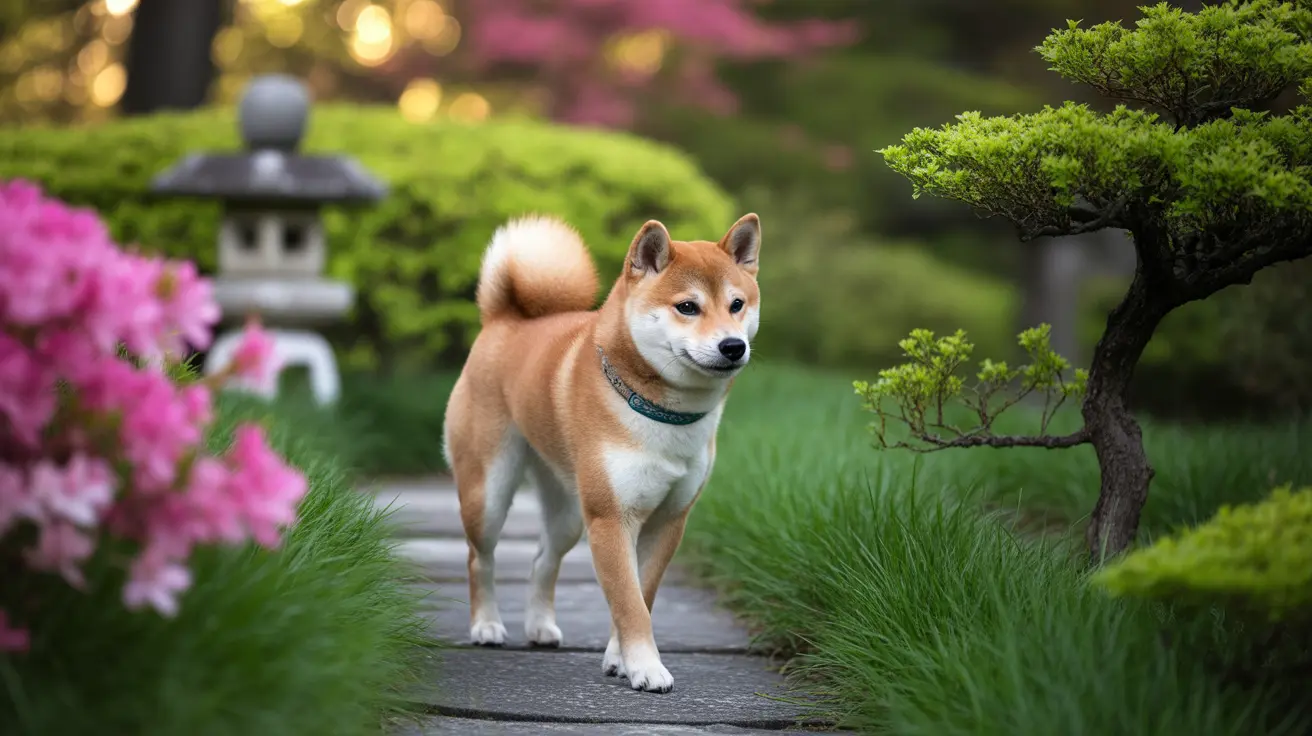Introduction
Creating a beautiful garden when you have dogs can feel like an impossible challenge. Dog urine's high nitrogen content often leaves unsightly brown patches and damaged plants in its wake. However, with the right knowledge about plants resistant to dog urine and proper garden management strategies, you can maintain a thriving outdoor space that both you and your furry friend can enjoy.
In this comprehensive guide, we'll explore the best urine-resistant plants, practical solutions for protecting your garden, and expert strategies for maintaining a pet-friendly landscape that stays beautiful year-round.
Best Plants That Resist Dog Urine Damage
Resilient Grass Options
Some grass varieties show remarkable resilience to dog urine compared to others. Zoysia japonica (Esmeralda Grass) demonstrates excellent tolerance to both urine exposure and foot traffic. Similarly, Stenotaphrum secundatum (St. Augustine grass) offers good resistance to regular pet activity, though it's important to note that no grass is completely immune to concentrated urine exposure.
Ornamental Plants with High Resistance
Several ornamental plants have shown impressive resistance to dog urine:
- Thunbergia: Perfect for fence coverage and walls
- Artemisia: Robust and aromatic
- Bear's Breeches: Tough perennial with architectural leaves
- Caniços (Reeds): Excellent for creating natural barriers
- Plantago lanceolata: Hardy ground cover option
Creating a Dog-Friendly Garden Design
Strategic Layout Planning
Design your garden with designated paths and relief areas for your dog. Use gravel or sand in specific zones where your dog can relieve themselves, keeping sensitive plants in raised beds or protected areas. This approach helps minimize random urination throughout the garden.
Protection Techniques
Implement these effective protection strategies:
- Install raised garden beds (at least 2 feet high)
- Use decorative fencing around sensitive plants
- Create mulched buffer zones
- Position hardy plants at garden edges
- Install motion-activated sprinklers in problem areas
Maintenance and Care Tips
Immediate Actions
When your dog urinates in the garden, quick action can prevent damage:
- Water the area immediately to dilute the urine
- Apply organic soil amendments to neutralize nitrogen
- Remove any affected plant material promptly
- Monitor pH levels in frequently targeted areas
Long-term Solutions
Implement these ongoing maintenance practices:
- Regular deep watering of resistant plants
- Monthly soil conditioning
- Seasonal replanting of damaged areas
- Consistent training of pets to use designated areas
Natural and Chemical Solutions
While plant selection is crucial, additional measures can help protect your garden:
- Natural repellents like citrus peels
- Commercial dog deterrent sprays
- Dog rocks in water bowls
- pH-balancing soil amendments
Frequently Asked Questions
What are the best plants that resist damage from dog urine in home gardens?
The most resistant plants include Thunbergia, Zoysia japonica grass, Artemisia, and various reed varieties. These plants have shown superior tolerance to dog urine while maintaining their aesthetic appeal.
How can I protect my lawn and ornamental plants from dog urine spots?
Immediate watering after urination, creating designated relief areas, using raised beds, and maintaining proper soil pH can significantly reduce urine damage. Regular deep watering also helps dilute accumulated nitrogen.
Are there safe, non-toxic plants for gardens where dogs frequently urinate?
Yes, safe options include Spider Plants, African Violets, Bird's Nest Ferns, and most Palm species. These plants are both resistant to urine and non-toxic if accidentally ingested by pets.
What practical steps can I take to minimize dog urine damage to my garden?
Implement a combination of strategic garden design, immediate watering after urination, soil amendments, and training your dog to use specific areas. Creating physical barriers and designated paths can also help protect sensitive plants.
Do dog urine neutralizers or dog rocks really help prevent lawn burning?
While these products may help reduce urine damage, their effectiveness varies. The most reliable approach combines multiple strategies, including proper plant selection, immediate watering, and good garden design.
Conclusion
Creating a dog-friendly garden requires thoughtful planning and the right plant choices, but it's absolutely achievable. By combining urine-resistant plants with smart garden design and consistent maintenance practices, you can enjoy a beautiful outdoor space that accommodates both your gardening aspirations and your four-legged friend's needs.






